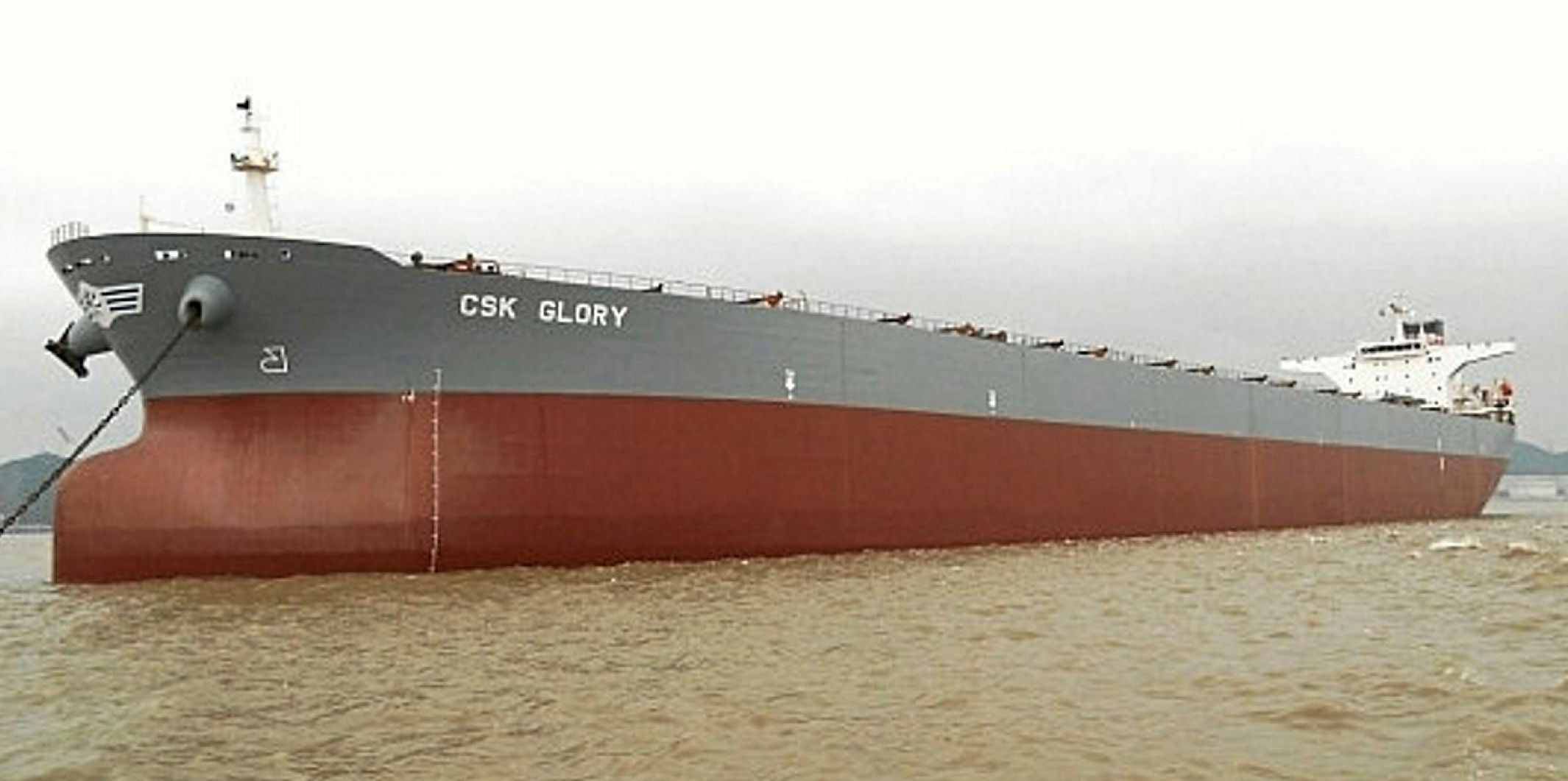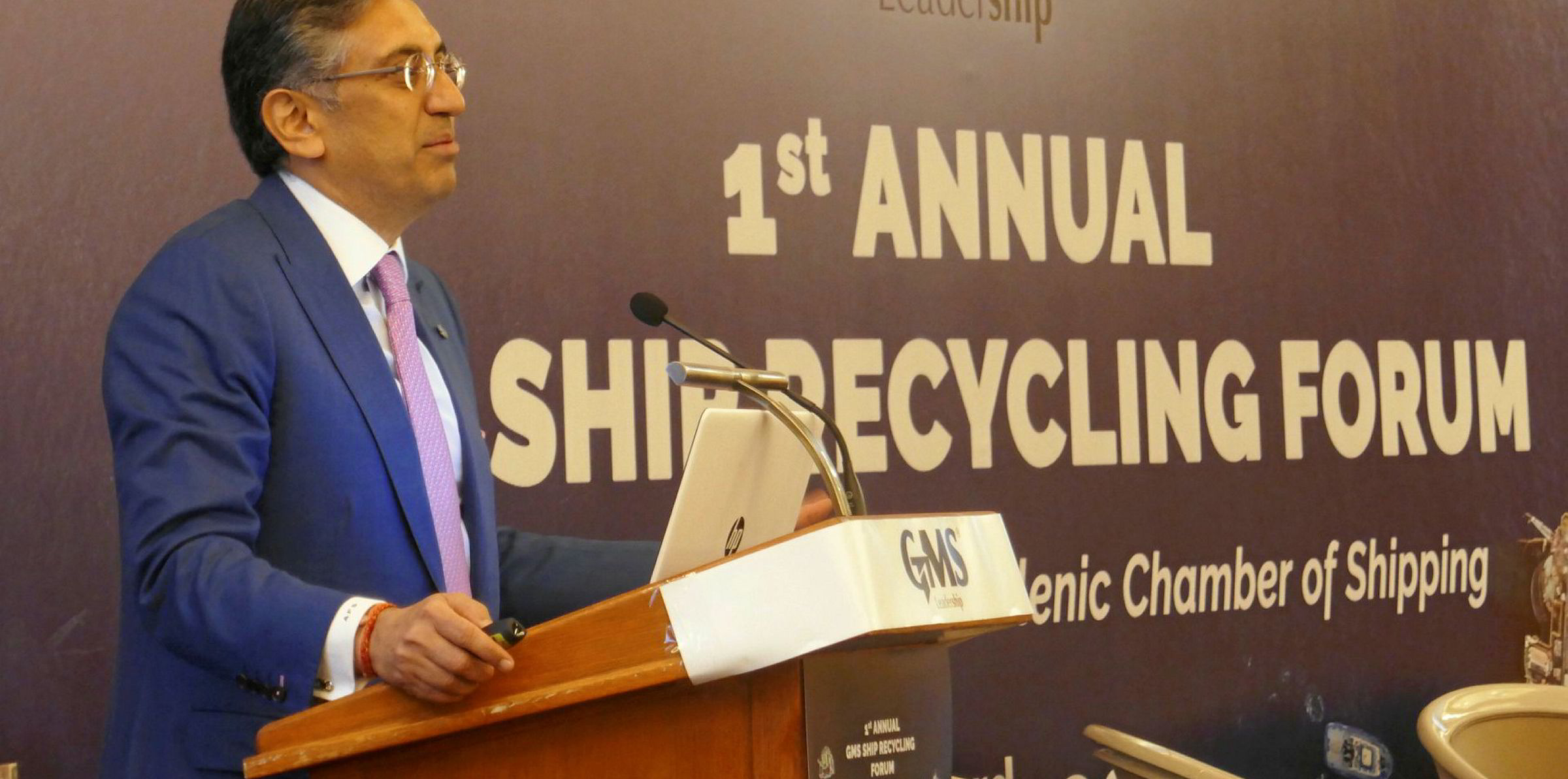Hong Kong's Tai Chong Cheang (TCC) has been to the English High Court to prevent cash buyer GMS from trading a ship sold for scrap.
Sources said the period-charter-oriented tanker and bulker owner turned down an offer that would have allowed it to collect 50% of the earnings and control the trading of a capesize bulker that it sold for demolition earlier this year.
Legal documents also show that the buyer and seller have fought the issue in court.
Vessel still in action
The 173,000-dwt Lory (built 2002) remains afloat after an April demolition sale due to a disappointing scrap market. But market sources told TradeWinds that TCC insisted on seeing the ship scrapped despite an offer to keep the vessel in action and share the profits.
"They didn't want to see it trading, so it's going for demolition," said a market source with insight into the deal. "Half the earnings of $30,000 per day could have been a nice extra bit of income."
Some sources said cash buyer GMS agreed to respect TCC's decision, but an order from the English High Court implies that legal steps were necessary to stop the ship from trading.
TCC is understood to have gone to the length of having its lawyers at Ince & Co contact brokers and potential charterers about the court ruling in order to warn them off the ship.
TradeWinds reported in April that the Lory, which was TCC’s oldest capesize at the time under its previous name of CSK Glory, had been sold “as is” in Singapore.
The ship still had over two years left before its next required special survey.
The vessel went for $9.5m, or for $458 per ldt, according to broker reports and IHS Maritime.
At that price, the sale was better timed from the point of view of seller TCC than that of the buyer, GMS.
Scrap slump
Scrap prices tanked soon afterwards, and market sources said GMS held the ship back from its fate in hopes of a recovery.
However, while the scrap market was still languishing, trading rates boomed and GMS approached TCC with a deal, according to commercial sources.
The memorandum of agreement governing the sale had specified demolition, but commercial sources said GMS proposed that if TCC would waive that term, GMS would trade the vessel, split the net earnings, and let TCC determine its trading. This would have spared TCC from any association with potential sanctioned or otherwise untoward trading.
A 24 September English High Court judgment by David Edwards QC, sitting as a judge, indicates that it took some timely legal moves to keep the buyer from trading the ship.
Charter fixed
On the same day, a charter had been fixed with DHL Project & Chartering Ltd for a single voyage carrying coal from South Africa to India.
"Save that the claimant and the vessel Lory ... may complete any loaded voyage being performed at the time this order is made, the defendant shall forthwith refrain from trading the vessel and shall not trade the vessel or resell the vessel for trading at any time in the future," Edwards wrote.
The parties in the English High Court case are Priyanka Shipping Ltd, which is the registered owner affiliated with GMS, and Glory Bulk Shipping Pte Ltd, which is the TCC affiliate.
"If Priyanka Shipping Ltd does not comply with this order and judgment, the directors, officers and responsible persons of Priyanka Shipping Ltd may also be held to be in contempt of court and may be imprisoned, fined or have their assets seized," said the court in a penal notice to the order.
Shipping databases connect the ship to Blue Whale Maritime, which a commercial source described as one of the managers that GMS often appoints for vessels before they are scrapped.
Other examples
TradeWinds has recently reported on other vessels that cash buyers have sold for further trading as trading rates improve. That has been the case especially as cash buyers seek to cut their losses on vessels they paid top dollar for before scrap rates deflated.
But in most known cases, the exit strategy of choice for cash buyers stuck holding overvalued steel has been to sell rather than trade the scrap candidates on their own. GMS may be more flexible in that regard as a cash buyer that also operates a fleet of trading vessels, according to market sources.
GMS declined to comment on the status of the Lory, and TCC's group chairman and chief executive officer, Kenneth Koo, did not respond immediately to a request for comment.
TCC owns a fleet of VLCC and aframax tankers and capesize and panamax bulkers, comprising 16 ships on the water and one on order.





